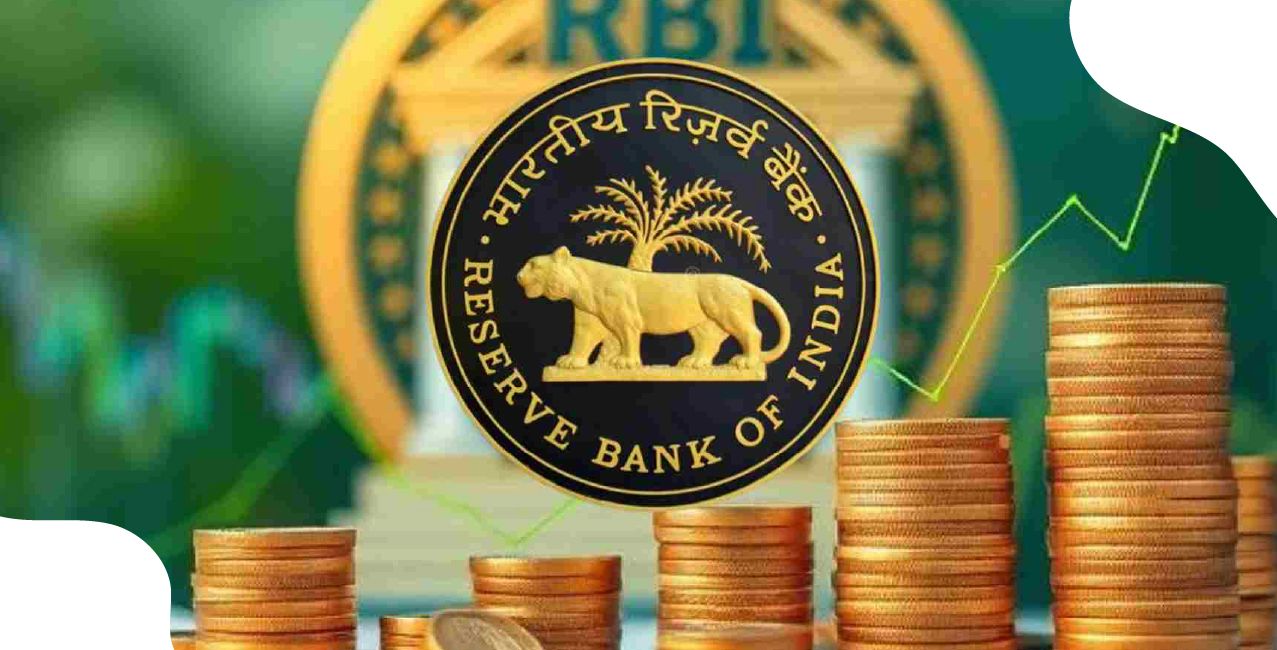FE Best Banks Awards 2025: Axis Bank’s Amitabh Chaudhry named Banker of the Year; Check full winners list here

Check Your Loan Eligibility Now
By continuing, you agree to LoansJagat's Credit Report Terms of Use, Terms and Conditions, Privacy Policy, and authorize contact via Call, SMS, Email, or WhatsApp
India’s banking sector finds itself at an inflection point—straddling legacy systems and digital ambitions, balancing growth with stability, and grappling with rising competition from fintech and NBFCs.
In this evolving landscape, industry accolades take on greater significance: they signal which institutions have successfully navigated these tensions and set benchmarks for governance, innovation, and financial performance. The FE Best Banks Awards 2025 is one such high-profile honours event, recognising top banks, NBFCs, fintechs, and leaders across India.
This article delves into the key highlights, selection process, winners, and the broader implications of the 2025 edition, concluding with reflections on the road ahead.
FE Best Banks Awards 2025: Overview & Methodology
The FE Best Banks Awards in 2025 returned as a marquee event drawing India’s banking, policy, and fintech leadership to Mumbai. The ceremony was graced by Union Home Minister Amit Shah, who emphasised the role of the banking sector in driving India’s growth story and urged banks to aim for a global top-10 position.
What sets these awards apart is the rigorous selection mechanism. An independent jury, chaired by S. Ramadorai (former Vice-Chairman of TCS), oversaw the process. Other jury members included former SBI chairman Dinesh Khara, Pradip Shah, Amit Chandra, and Sharad Sharma. EY acted as the knowledge partner, compiling and verifying three years of data from the Reserve Bank of India. The evaluation went beyond raw financial metrics, incorporating aspects such as corporate governance, innovation, product leadership, and institutional resilience.
This hybrid approach ensures that the awards reflect both quantitative performance and qualitative leadership—important in a sector where reputation, trust, and forward thinking often matter as much as balance-sheet strength.
Key Winners & Highlights
Among the many honours bestowed, a few stand out for their significance. Leading the pack, Amitabh Chaudhry, MD & CEO of Axis Bank, was named Banker of the Year. He has been widely credited with steering Axis through a transformative phase, improving profitability, strengthening cultural and digital DNA, and restoring investor confidence.
Another noteworthy recognition was the Lifetime Achievement Award given to Shyam Srinivasan, former MD & CEO of Federal Bank, honoring his long-standing contributions to India’s banking segment.
In institutional categories, Bank of Maharashtra was named Best Public Sector Bank, while Kotak Mahindra Bank took home the award for Best Savings Bank Product (for the second year in a row).
Below is a composite table summarising key winners and categories:
Introduction to the table:
The table below provides a snapshot of select awards recognised at the FE Best Banks Awards 2025, highlighting the winners in some top categories and illustrating the diversity of institutions honoured.
After the table:
The above table underscores how the FE Best Banks Awards do not merely focus on balance-sheet metrics but also commend leadership, institutional credibility, product innovation, and sustained performance. These categories help illuminate how winners stand out not just in size, but in strategic direction and customer engagement.
Beyond these headline winners, several other institutions, NBFCs, and fintech firms were also recognized across categories such as digital banking, payments, lending, and regulatory technology, reflecting the ecosystem's richness.
Amitabh Chaudhry’s Leadership & Axis Bank’s Transformation
To understand the significance of the Banker of the Year award, it is instructive to examine the journey of Axis Bank under Amitabh Chaudhry’s stewardship. When he took over in January 2019, Axis was battling legacy non-performing assets, cultural silos, and lagging digital infrastructure.
Over his tenure, the bank has posted impressive improvements: return on assets rose from around 0.2 % in FY2020 to approximately 1.74 % in FY2025, and return on equity climbed from 2.34 % to 16.52 %. Net profits have compounded strongly, and deposit growth, net interest income, and asset quality metrics have also shown notable resilience.
He has emphasized a humane, purpose-driven banking culture, marrying technology with empathy and institutional vision. The award acknowledges not only the financial turnaround but also how he has led transformation at organizational and strategic levels.
This recognition also sends a signal to other banking leaders: performance in India’s current phase must rest on the twin pillars of operational excellence and human-centric innovation.
Broader Trends Reflected in FE Best Banks 2025
The FE Best Banks Awards 2025 also mirror several broader currents reshaping Indian banking.
1. Digital & Product Innovation
Recognition of Kotak Mahindra Bank’s savings-product design underscores how banks are competing on features, user experience, and embedded services rather than just interest rates or branch coverage.
2. Governance & Risk Culture as Differentiator
Given the inclusion of governance, compliance, and institutional robustness in the evaluation matrix, banks with stronger control frameworks gain an edge—especially in a post-crisis era where regulatory scrutiny is high.
3. Leadership Visibility & Brand Trust
As competitive intensification grows, standout leaders become brand embodiments. Awards like “Banker of the Year” not only validate internal strategy but also bolster external trust and stakeholder equity.
4. Cross-sector Collaboration
By awarding fintechs and NBFCs in categories like payments, lending, regtech, etc., the event signals the need for symbiotic co-existence between banks and newer financial players rather than adversarial disruption.
Challenges, Critiques & Areas for Improvement
While the FE Best Banks Awards carry weight, no awards system is without critique. One possible challenge is data interpretation bias: banks that aggressively grow may appear stronger on top-line metrics, even if underlying credit risk or provisioning is weak. It is essential for juries to dig beneath headline figures—a task the FE Awards’ multi-year data and governance lens attempt to address.
Another point is category inflation. As more sub-verticals (fintech, regtech, payments) are added, the signal value of each may be diluted. Ensuring that categories remain meaningful and selective will be important going forward.
Finally, awards tend to highlight success stories, but learning from failures or near misses (for improvement) could strengthen industry learning. A section on “emerging challengers” or “rising disruptors” might be a useful supplement.
Implications & Industry Takeaways
What does the 2025 edition of FE Best Banks tell us about where Indian banking is headed?
- Leadership matters more than ever. Visionary CEOs who can combine technological foresight with institutional culture will stand out.
- Institutional resilience—governance, capital buffers, credit discipline—remains critical in an uncertain macro environment.
- Product innovation is no longer optional. Retail and digital products must evolve to meet changing consumer expectations.
- The line between banks and fintechs will blur further. Collaboration and integration may become the norm, rather than pure competition.
For customers, these awards provide a signal: banks recognised here may be safer choices, more innovative, and more forward looking.
Conclusion
The FE Best Banks Awards 2025 offers more than just a roster of winners—it provides a lens into which banks are adapting, leading, and differentiating themselves in a rapidly evolving financial ecosystem. With Amitabh Chaudhry taking top honours, and institutions ranging from public sector banks to product innovators earning recognition, the awards reinforce that success in India’s banking future demands agility, accountability, and vision.
If there is one clear message, it is this: the next decade in Indian banking belongs to those who can balance performance with purpose—and who can embed technology, governance, and customer centricity at their core.
Other News Pages | |||
About the author

LoansJagat Team
Contributor‘Simplify Finance for Everyone.’ This is the common goal of our team, as we try to explain any topic with relatable examples. From personal to business finance, managing EMIs to becoming debt-free, we do extensive research on each and every parameter, so you don’t have to. Scroll up and have a look at what 15+ years of experience in the BFSI sector looks like.
Subscribe Now
Related Blog Post

Home Loan Interest Rates 2025 Deliver Major EMI Relief, Will Borrowers See More Gains In 2026?

Will the Indian Rupee Stabilise in 2026 After a Volatile 2025?

RBI Draft Rules Target Surprise Costs in Overseas Payments
Recent Blogs
All Topics
Contents
Quick Apply Loan
Consolidate your debts into one easy EMI.
Takes less than 2 minutes. No paperwork.
10 Lakhs+
Trusted Customers
2000 Cr+
Loans Disbursed
4.7/5
Google Reviews
20+
Banks & NBFCs Offers
Other services mentioned in this article





